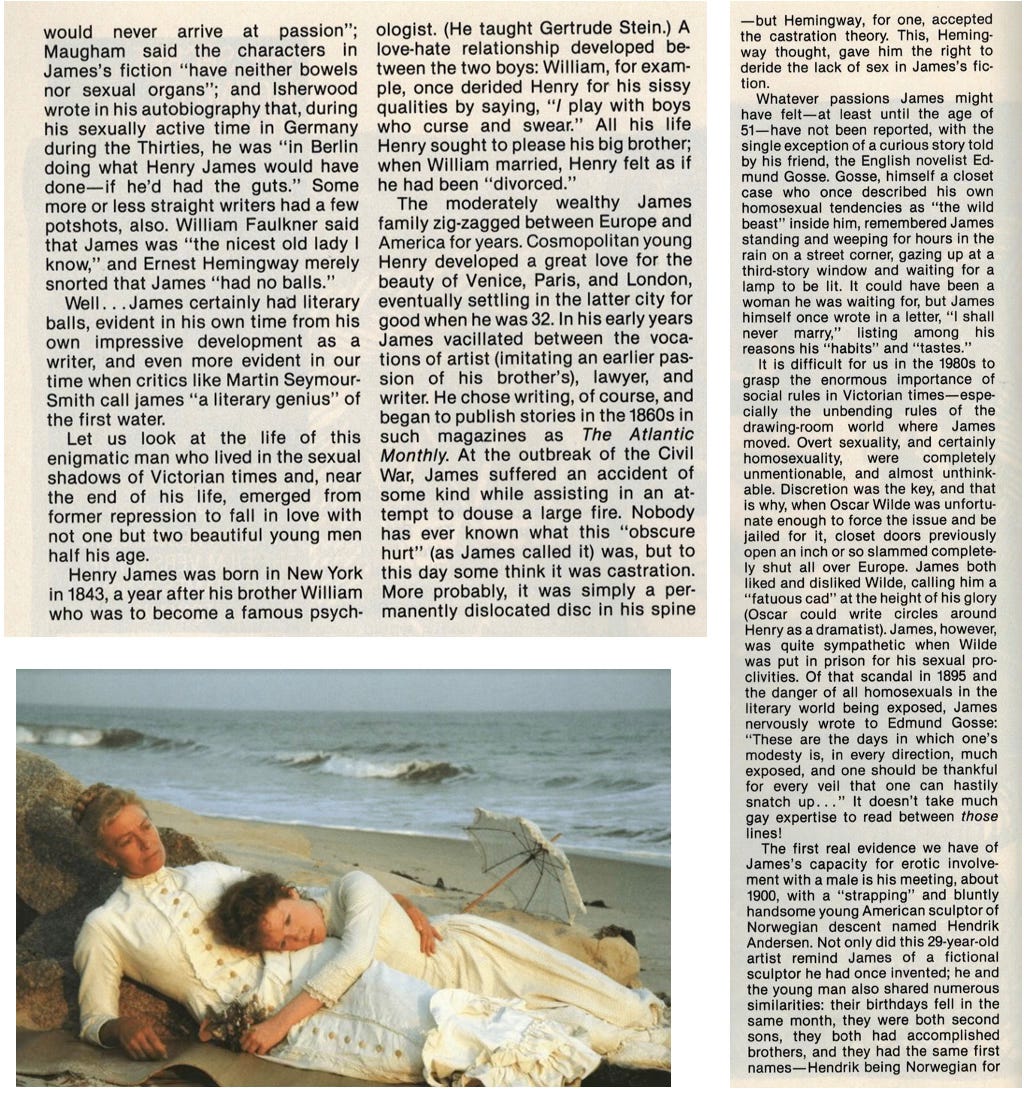He is not easy reading. He writes a form of English that no one speaks, that no one writes except Henry James. Once your eye accustoms itself to this Jamesian language, however, you may feel a kind of exhilaration, a sense of accomplishment similar to reading French, or German, or any foreign language. Here is the first sentence of The Tragic Muse, a novel published in 1890 and set, among other venues, in the theatre world of London. The title character is Miriam Rooth, a French actress: “The people of France have made it no secret that those of England, as a general thing, are, to their perception, an inexpressive and speechless race, perpendicular and unsociable, unaddicted to enriching any bareness of contact with verbal or other embroidery.”
And the last sentence: “It is very true there has been a rumour that Mr. Macgeorge is worried about her — has even ceased to believe in her.”
I cite this novel because it has a particular meaning for me. There was a time when no amount of money would have convinced me to take a Henry James novel as reading on a translantic flight and as fourteen nights’ bedtime reading across Albania, Croatia, and Bosnia. But, after years of jousting with James, sometimes winning and other times losing, I landed back home in April 2019 highly satisfied with my travels and equally so with the story of Miriam Rooth and the ups and downs of her entourage.
James’s prose demands attention, and if you aren’t focused you may well toss him aside with an impatient grunt. It’s important to know at the outset that he leaves a great deal unsaid, expecting you, as an intelligent reader, to solve the subtle psychological puzzles of his stories. Given our short twenty-first century attention spans, it’s unlikely that Henry James will create great interest on Tik Tok, shall we say. Nor do I expect him to become anyone’s influencer.
The movies have been generous to Henry James, and in general they have done well by him. I counted, with assistance from IMDb, about twenty. His novels, novellas, and short stories have also been adapted for the stage.
My late friend Charles Harmon Cagle, who taught English literature at Pittsburg State University in Kansas, wrote this sprightly introduction to James, whose life, or the intimate parts of it, like his writing, leaves more unsaid than stated.










Thanks for exposing us to Henry James. I knew little of him other than he was an 19th century writer.